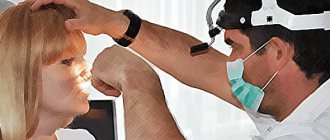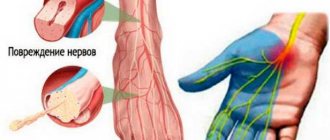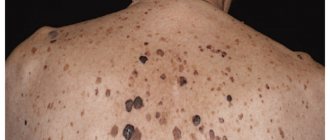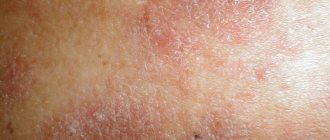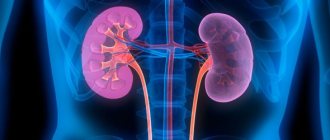10/24/2017012/6/2017 Olga Migunova 2 comments
Probably, many of us have encountered such a phenomenon as loss of voice, which in medicine is called aphonia. The causes of this condition can be both inflammatory diseases of the upper respiratory tract and neoplasms of the trachea or vocal cords. Therefore, people whose voice has disappeared cannot do without consulting a specialist.
In this topic we will explain in detail why the voice disappears, what to do and how to treat the diseases that led to this condition.
Symptoms of aphonia without sore throat
The voice disappears (the reasons, if the throat does not hurt, may be hidden in various pathologies) is a symptom, when detected, it is important to pay attention to the presence of other signs of the disease:
- Difficulty breathing. With swelling of the upper and lower respiratory tract, a narrowing of their lumen is observed, which makes it difficult for air to pass through, and an obstructive type of ventilation disorder develops. In this case, the person feels a lack of air and shortness of breath occurs.
- Sensation of squeezing, squeezing in the throat. With a tumor process or severe swelling, a feeling of a foreign body or tightness may appear. In this case, there is also a lack of air and shortness of breath.
- Manifestations of a systemic inflammatory response. Despite the absence of a sore throat, the body may begin to fight the infection, and clinically this will be expressed in increased body temperature, weakness, headache, and chills.
- Cough, dry mouth. With aphonia, patients often complain of a dry, unproductive cough, a feeling of dryness in the mouth and lips.
Acute laryngitis
Laryngitis is an inflammatory process that affects the mucous membrane of the larynx, affecting the vocal folds . Normally, the edges of the vocal folds are thin and stretched, due to this they are able to close tightly. With inflammation, swelling of the mucous membrane occurs, the edges thicken, become uneven, flabby, their closure is disrupted, and hoarseness occurs, sometimes to the point of complete loss of sonority. The inflammatory secretion accumulating in the lumen of the glottis further interferes with the closure of the folds.
laryngitis
The causative agents of acute laryngitis are most often respiratory viruses (influenza, parainfluenza, rhinosyncytial infection, adenoviruses), less often - bacterial or fungal flora. The provoking factor is usually hypothermia, drinking cold liquid.
With acute loss of voice due to vocal strain, we can talk about acute non-infectious laryngitis.
Also, the cause of acute laryngitis can be the irritating effect of dust and gases.
Symptoms
- Dysphonia – varying degrees of voice impairment (hoarseness, roughness, hoarseness up to aphonia).
- Dry hacking cough.
- Unpleasant sensations in the pharynx and larynx - there may be pain, a feeling of a “lump”, rawness.
- An increase in temperature is an unstable symptom and is not typical for isolated laryngitis (only as part of general viral intoxication).
Why does an adult suddenly lose his voice from time to time?
By studying all the symptoms in detail, you can more accurately determine the cause of aphonia.
Most often this is caused by the following diseases:
- Laryngitis. This is an inflammation of the larynx, which can be of a non-infectious nature: hypothermia, excessive strain on the vocal cords, for example, in singers or teachers. Laryngitis is also caused by infectious agents, for example, influenza viruses, measles, and diphtheria. Other symptoms of laryngitis are high fever, headache, weakness, apathy, and fatigue.
Reasons why your voice may be lost - Disorders of the innervation of the larynx. This type of disorder includes paralysis: myopathic and neuropathic. The first are associated with damage to the muscle fibers themselves; they develop when damaged by microbes and their toxins or after hemorrhages caused by prolonged voice strain in unfavorable conditions (dust, gas pollution). The second group of paralysis is associated with organic damage to the vagus nerve and its branches, which can be caused by injury, infection, or compression by a tumor. With this pathology, patients will also complain of difficulty swallowing, shortness of breath, and wheezing.
- Functional paralysis of the larynx. This category of paralysis has a central development mechanism: an imbalance between the processes of excitation and inhibition in the cerebral cortex.
- Endocrine disorders. Diseases of the thyroid gland (hyper- and hypothyroidism) can cause local circulatory disorders, which leads to swelling of the vocal folds. Also entails aphonia and dysfunction of the adrenal cortex. For such diseases, symptomatic treatment will be ineffective, so it is necessary, first of all, to cure the underlying pathology.
- Tumor processes. Benign and malignant tumors of the larynx in the initial stages may not manifest themselves clinically. But as they progress, they begin to significantly compress adjacent organs, tissues and blood vessels, which leads to ischemia and edema.
- Other reasons. Aphonia can also be a consequence of the influence of the following factors: stress disorders;
- mental disorders;
- long-term smoking;
- mechanical damage to the vocal cords;
- eating spicy food.
Tumors
Loss of voice can sometimes be a symptom of a serious disease - a tumor of the larynx that directly affects the vocal folds, or a tumor of another location that compresses the recurrent nerve. Among tumors of other localizations, it is necessary to note tumors of the thyroid gland, esophagus, mediastinum, lung, as well as metastases to the lymph nodes of the mediastinum.
Suspicion of the malignant nature of the disease should be caused by gradual or sudden loss of voice, lasting more than 2 weeks, without signs of a cold.
degree of laryngeal cancer
It is necessary to pay attention to other signs of a malignant course: weight loss, loss of appetite, weakness, fatigue, difficulty swallowing, pain, enlarged peripheral lymph nodes.
Laryngeal cancer occurs predominantly in men over 40 years of age who abuse smoking and alcohol.
Diagnostics
After identifying the main symptoms, it is necessary to conduct a more accurate diagnosis.
If a tumor process is suspected, the following studies are indicated:
- radiography of the head and neck;
- Ultrasound of the thyroid gland;
- blood test for tumor markers.
If a tumor is detected, a biopsy specimen must be taken for histological examination.
In cases where a viral or bacterial infection is suspected, the following diagnostic measures must be carried out:
- bacterial seeding of biological material from the mucous membranes of the respiratory tract;
- polymerase chain reaction to detect the genome of the virus in biological material;
- immunological reactions to detect viral antigens.
Beverages
How to quickly lose your voice? The next piece of advice that can be given to a person is to stop drinking liquid. Especially when screaming. You just shouldn’t limit yourself to fluids - this is fraught with negative consequences for the body. But during the screaming period, it is recommended to exclude all drinks.
The point is that the larynx will become tense faster without moisture. This means that the results from screaming will be faster. Therefore, if you want to know how to quickly lose your voice, you need to forget about drinks for a while.
Methods for treating voice loss at home if there is no fever or sore throat
The voice disappears (the reasons, if the throat does not hurt, may be hidden in inflammation of the vocal cords) - an important signal that therapeutic treatment should be started. Modern pharmacological companies offer a large selection of drugs against aphonia, each of which has its own characteristics in terms of spectrum of action, list of indications and side effects, and method of administration.
Pills
The table displays information about the pharmacological effects and rules for taking individual tablets for the treatment of aphonia:
| Drug name | pharmachologic effect | Method of administration |
| Loratadine | A second-generation antihistamine, the mechanism of which is to block histamine receptors, reducing the production of histamine, the main mediator of allergic reactions. This leads to an increase in vascular permeability, a decrease in the intensity of edema and inflammation. | Adults: 1 tablet. 1 per day. |
| Faringosept | A drug with a combined effect: antiseptic and bacteriostatic. It has pronounced activity against various types of streptococci that cause respiratory diseases. | Lozenges should be taken in 4-5 pieces. per day, the course of treatment is 3-4 days - it is after this period of time that the optimal concentration of the active substance in saliva is achieved. |
| Sebidin | Lozenges containing antiseptic and ascorbic acid. The first component helps in the fight against pathogenic microorganisms, and the second increases the body's resistance to infections. | Take 1 tablet. 4-5 times a day, course of treatment – 1 week. |
| Trachisan | A combined drug containing antibacterial, antiseptic and local anesthetic components. The tablets help fight microbes and also have analgesic and anti-inflammatory effects. | Take 1 tablet. every 2 hours, daily dose – no more than 8 tablets. |
Antibiotics
The voice disappears (the reasons, if the throat does not hurt, lie in infection with pathogenic bacteria) - this is a signal that antibiotic treatment should be started. But it is important to remember that only a doctor can prescribe an antibiotic; self-treatment can lead to the development of antibiotic resistance and side effects.
The most effective antibiotics for the treatment of respiratory diseases:
- Amoxicillin. A drug from the group of penicillins with a broad spectrum of action. Active against streptococci that cause respiratory diseases. The mechanism of action is to disrupt the synthesis of the bacterial cell wall. The course of treatment and dosage is established by an otolaryngologist.
- Azithromycin. A drug from the broad-spectrum macrolide group, the mechanism of action is to disrupt protein synthesis in the bacterial cell. Used to treat infections of the ENT organs.
- Ciprofloxacin. Synthetic antibacterial agent from the group of fluoroquinolones. Blocks the bacterial enzyme DNA gyrase. Macroorganisms lack such an enzyme, which explains the low toxicity. Effective against bacteria that cause respiratory diseases and infections of the ENT organs.
Inhalations
If your voice is lost and your throat does not hurt, inhalation will help. This is a method based on inhaling vapors of a medicinal substance. Inhalation promotes the selective effect of the drug on the respiratory tract, reduces absorption time, which helps to effectively eliminate the cause of the absence of voice.
Below are the most effective options for inhalation solutions:
- Essential oils. To make such an inhalation, you need to dissolve 20-40 drops of essential oil (juniper, eucalyptus, anise, fir) in 200 ml of water, heat it to a temperature of 60-70 °C and breathe over the container, covered with a towel. You can also use a special inhaler with a container.
- Decoctions of medicinal herbs. To prepare such a solution you need to take 1 tbsp. dry crushed plant (coltsfoot, eucalyptus, sage, chamomile) and dissolve in a glass of water, then cool the broth to 60-70 °C.
- Soda. The simplest and no less effective method is inhalation with a soda solution. 0.5 tsp baking soda should be dissolved in a glass of water, then boiled and cooled.
Rinse
Rinsing is an additional therapeutic method. Solutions of furatsilin, hydrogen peroxide, and chlorhexidine can be used as solutions for this procedure. These substances have a strong antiseptic effect.
Physiotherapy
Physiotherapy is also an adjunct to primary treatment for respiratory conditions. Effective methods are ultraviolet radiation, ultrasound therapy, laser therapy.
Treatment methods
In order to get rid of unpleasant symptoms and regain the ability to speak fully, you must strictly follow the recommendations of the otorhinolaryngologist and follow all his instructions. An effective treatment strategy looks like this:
- Voice rest
- Nutrition adjustments.
- Drink plenty of fluids.
- Rinse.
- Treatment with medications.
- Physiotherapeutic procedures.
Give your ligaments a rest. Ideally, it would be a day of silence. Under no circumstances should you whisper. Whispering makes the ligaments tense even more than full speech. If the need arises, it is better to say the phrase quietly, but do not whisper!
Eliminate from your diet foods that are too hot, hard, sour or spicy, that is, all foods that irritate an already sore throat. During treatment, give up bad habits - alcohol and smoking.
In this case, the drinks consumed should be warm or at room temperature. Teas, fruit drinks, compotes, herbal infusions, and mineral water are suitable. Don’t forget about this popular folk remedy - warm milk with honey or butter. This drink seems to envelop the mucous membrane of the pharynx and have a beneficial effect on it. The only thing is that you need to be careful with honey so as not to provoke an allergic reaction.
For these symptoms, rinsing the throat shows a very good effect. As a rinse, you can use herbal decoctions, furatsilin solution, as well as medications recommended by an ENT doctor.
Drug therapy may include taking antibiotics, antiviral, antiseptic, antihistamines, antipyretics, using lozenges, lozenges, and sprays to relieve pain in the throat.
Physiotherapy perfectly complements drug treatment. Physiotherapy procedures are carried out in an ENT clinic under the supervision of an otolaryngologist and significantly speed up the recovery process.
The correct treatment tactics can be prescribed only after examination by an ENT doctor
There is no need to try to look for answers on the Internet or from friends and acquaintances. Each diagnosis requires a specific approach. Incorrectly administered therapy can cause complications!
How to quickly restore your voice using folk remedies?
Folk remedies are a good method in addition to basic complex therapy. Their main advantage is the lack of toxicity to humans and hypoallergenicity.
Chamomile tea
Chamomile is a medicinal plant that is used in the treatment of colds and inflammatory diseases. Chamomile has tonic, softening, anti-inflammatory and analgesic effects.
To prepare this tea, you need:
- Pour 2 tsp. dried plant with a glass of boiling water.
- To cover with a lid.
- Let it brew for 10 minutes.
- Strain the product.
You can add sugar or honey to tea to make the taste richer.
Viburnum tea
Healthy teas, tinctures, and jams are prepared using viburnum. This plant contains a large amount of vitamins and antioxidants, also has a good diuretic effect, promotes sweating, which is important for infectious respiratory diseases. To prepare viburnum tea, you need to mash a handful of berries in a bowl that can be kept on fire.
Then pour boiling water and let it brew. When the tea has cooled to about 40 °C, you can add a spoonful of honey.
Tea with hawthorn
Hawthorn berries are rich in useful substances: flavonoids, antioxidants, vitamins, pectin, minerals. Dried berries can be combined with different types of tea, for example, black. To prepare this tea, you need to take 1 tbsp. tea and dry berries, pour a glass of boiling water, let it brew for 5 minutes. and strain. If desired, you can add lemon or sugar.
Sea buckthorn oil
Sea buckthorn oil is a good remedy for increasing overall immunity and body resistance. It should be taken daily on an empty stomach, 2-3 tsp.
Milk with honey
Milk with honey is a well-known folk way to fight colds, but now the benefits of this drink are being questioned. When heated to 40°C, honey loses its beneficial properties and even releases harmful substances. Therefore, you can heat the milk to this temperature and add 1 tbsp. honey
Cognac with honey
This method of treating aphonia is controversial, but still many claim that it is quite simple and effective. To 1 glass of cognac (50 g) you need to add ¼ tsp. honey, lemon as a snack. But this remedy should be used no more than once a day.
Ginger tea
To prepare this drink, it is best to use fresh ginger, as it better retains its beneficial properties. You need to take a small piece of ginger root, grate it, pour a glass of boiling water, add lemon and mint, close the lid and let it brew for 15-20 minutes. You can drink this tea in the morning and before bed.
Potato juice
To prepare this juice, you need to take good potatoes and boil them until soft. It is best to extract the juice using a juicer; you can also use the older method: grate the potatoes, then squeeze through cheesecloth. Potato juice does not last long, so you need to prepare a new portion before each use. You should drink juice 3 times a day after meals.
What should you not do if you lose your voice?
If you have aphonia, you should not do the following:
- be exposed to low air temperatures for a long time;
- strain the vocal cords;
- eating too spicy food;
- drink cold drinks;
The voice disappears, but the throat does not hurt - a good reason to contact an otolaryngologist, who will find out the exact cause of the disease and prescribe comprehensive treatment. Self-medication is dangerous - it may not only not give the desired result, but also lead to dangerous complications.
